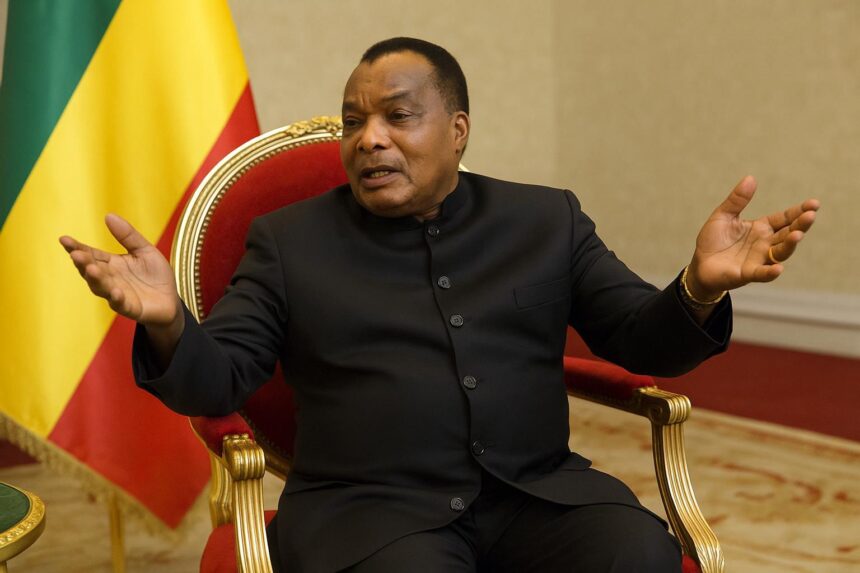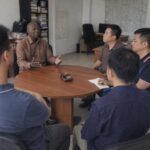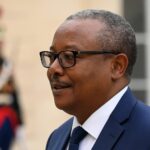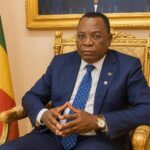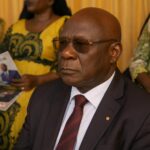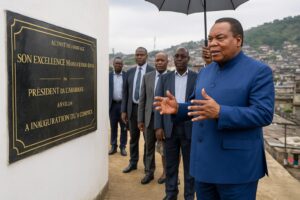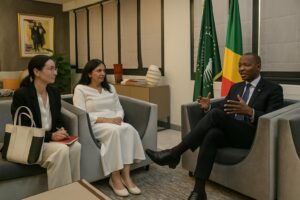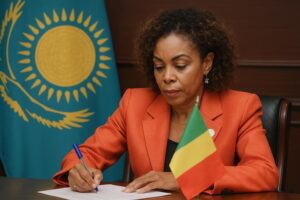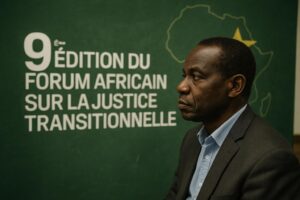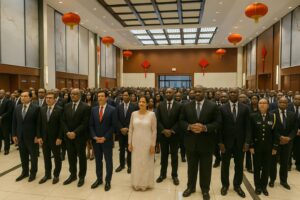Congo-China State Visit Sets the Stage
President Denis Sassou-Nguesso is scheduled to arrive in Beijing on 3 September for a three-day state visit at the invitation of President Xi Jinping. Congolese officials portray the journey as a logical extension of Brazzaville’s co-chairmanship of the Forum on China–Africa Cooperation.
- Congo-China State Visit Sets the Stage
- Trade, Debt and Investment at the Core
- Energy Cooperation Expands into Gas
- FOCAC Co-Chairmanship Elevates Brazzaville
- Diversifying toward Agriculture and Industry
- Security and Industrial Dimensions
- Debt Dynamics and Financial Flexibility
- Expert Perspectives and Future Summit
It will be Sassou-Nguesso’s third trip since Brazzaville took the rotating role in 2023. Diplomats say the visit also allows coordination with An Qing, China’s newly accredited ambassador, as preparations intensify for the FOCAC summit that Congo will host in 2025.
Trade, Debt and Investment at the Core
China accounts for roughly six billion dollars in annual trade, one quarter of Congo’s external debt and most new investment, according to data from Africa Intelligence and the finance ministry.
Chinese banks helped fund the highway linking Pointe-Noire to Brazzaville and the new national parliament complex on the capital’s banks of the Congo River, projects that officials highlight as tangible symbols of a partnership President Sassou-Nguesso often labels win-win.
Energy Cooperation Expands into Gas
Energy cooperation is set to dominate the forthcoming discussions. After entering the offshore oil segment through Wing Wah in 2015, Beijing-based Southernpec is now developing the Banga Kayo gas scheme, designed to monetise thirty billion cubic metres that would otherwise be flared.
Officials close to the dossier, including Minister of Territory Administration Jean-Jacques Bouya and International Cooperation Minister Denis-Christel Sassou-Nguesso, see the gas project as a blueprint for diversifying revenue streams while reducing environmental footprints, a theme that resonates with China’s own green transition narrative.
FOCAC Co-Chairmanship Elevates Brazzaville
Brazzaville’s shared leadership of FOCAC has already raised its diplomatic profile. In April, Foreign Minister Jean-Claude Gakosso co-hosted virtual consultations with his Chinese counterpart Wang Yi, stressing that infrastructure financing would remain important but should be balanced by capacity building and technology transfer.
Those deliberations fed into a joint communiqué that underscored support for multilateralism and opposed what both sides described as protectionist headwinds. Analysts at the South African Institute of International Affairs argue the wording offers Brazzaville additional leverage in future debt-restructuring talks with Paris Club members.
Diversifying toward Agriculture and Industry
Beyond hydrocarbons, Beijing has signalled intent to broaden its engagement into agro-industry. In July, fifty African scholars, journalists and officials attended a seminar in Shanxi on smart farming techniques; Congo’s delegation was led by Steven Lumière Moussala, adviser to Prime Minister Anatole Collinet Makosso.
Chinese agronomists presented pilot projects employing satellite mapping and drip irrigation, areas that could align with Congo’s stated goal of reducing its food import bill, currently estimated by the African Development Bank at nearly seven hundred million dollars annually over the medium term.
Security and Industrial Dimensions
Industrialisation is another frontier. The Chinese chamber of commerce in Congo confirmed that feasibility studies are ongoing for a special economic zone near Oyo, the president’s hometown, focusing on light manufacturing. Security cooperation, meanwhile, remains primarily logistical, with Chinese firms supplying non-lethal equipment to Congolese peacekeepers.
No formal defence pact is on the table, and officials on both sides emphasise respect for the African Union’s guiding principles on sovereignty. A senior diplomat in Brazzaville notes that keeping military ties calibrated at support level avoids perceptions that Congo is drifting into any exclusive security orbit.
Debt Dynamics and Financial Flexibility
Debt sustainability will remain a discreet but decisive theme. Congo restructured several Chinese loans in 2019, extending maturities to 2038; economists expect Brazzaville to seek further grace periods in order to keep its IMF programme on track.
Beijing’s foreign-ministry spokesperson has signalled openness, reiterating that China “never imposes a one-size-fits-all solution.” Observers note that the co-chairmanship gives Congo a diplomatic platform to frame debt talks within wider conversations on investment and climate resilience.
Expert Perspectives and Future Summit
Jean-Michel Mabiala, an economist at Marien Ngouabi University, describes the visit as “an opportunity to renegotiate timelines on Chinese-backed loans while anchoring new sectors of cooperation.” He adds that success will hinge on Congo’s ability to present bankable projects rather than rely solely on sovereign guarantees.
For Beijing, says Zhou Dongyu of the China-Africa Institute, Congo offers strategic maritime access through Pointe-Noire and a stable political environment, two factors that mitigate risk in a region often affected by volatility. “Continuity of governance matters for investors,” she told reporters in Shanghai.
Congolese sources indicate that memoranda of understanding on digital payments, university exchanges and disease surveillance are being finalised for signing in Beijing. While short on headline-grabbing megaprojects, the documents could significantly signify a maturing relationship that values systems, standards and people-to-people links.
If the trajectory holds, attention will soon shift to the 2025 summit in Brazzaville, likely to convene dozens of heads of state. The forthcoming visit is therefore less a ceremonial courtesy than an early rehearsal, setting tone and expectations for Congo’s biggest multilateral event in decades.

